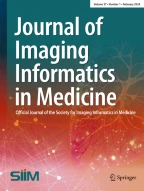Task Group 18 (TG 18) of the American Association of Physicists in Medicine has developed guidelines for Assessment of Display Performance for Medical Imaging Systems. In this document, a method for determination of the maximum room lighting for displays is suggested. It is based on luminance measurements of a black target displayed on each display device at different room illuminance levels. Linear extrapolation of the above luminance measurements vs. room illuminance allows one to determine diffuse and specular reflection coefficients. TG 18 guidelines have established recommended maximum room lighting. It is based on the characterization of the display by its minimum and maximum luminance and the description of room by diffuse and specular coefficients. We carried out these luminance measurements for three selected displays to determine their optimum viewing conditions: one cathode ray tube and two flat panels. We found some problems with the applicationof the TG 18 guidelines to optimize viewing conditions for IBM T221 flat panels. Introduction of the requirement for minimum room illuminance allows a more accurate determination of the optimal viewing conditions (maximum and minimum room illuminance) for IBM flat panels. It also addresses the possible loss of contrast in medical images on flat panel displays because of the effect of nonlinearity in the dependence of luminance on room illuminance at low room lighting.
Similar content being viewed by others
Explore related subjects
Discover the latest articles, news and stories from top researchers in related subjects.References
Assessment of Display Performance for Medical Imaging Systems. American Association of Physicists in Medicine (AAPM). Task Group 18 Guidelines
K Chakrabarti R Kaczmarek JA Thomas A Romanyukha (2003) ArticleTitleEffect of room illuminance on monitor black level luminance and image contrast J Digit Imaging 16 350–355 Occurrence Handle14747935 Occurrence Handle1:STN:280:DC%2BD2c7gtVyltw%3D%3D Occurrence Handle10.1007/s10278-003-1720-5
M Scharitzer M Prokop M Weber M Fuchsjager E Oschatz C Schaefer-Prokop (2005) ArticleTitleDetectability of catheters on bedside chest radiographs: comparison between liquid crystal display and high-resolution cathode-ray tube monitors Radiology 234 611–616 Occurrence Handle15601893
G Partan R Mayrhofer M Urban M Wassipaul L Pichler W Hruby (2003) ArticleTitleDiagnostic performance of liquid crystal and cathode-ray-tube monitors in brain computed tomography Eur Radiol 13 2397–2401 Occurrence Handle14534808 Occurrence Handle10.1007/s00330-003-1822-y
JH Fan H Roehrig MK Sundareshan E Krupinski WJ Dallas K Gandhi (2005) ArticleTitleEvaluation of and compensation for spatial noise of LCDs in medical applications Med Phys 32 578–587 Occurrence Handle15789605 Occurrence Handle10.1118/1.1855031
C Balassy M Prokop M Sailer J Sailer CJ Herold C Schaefer-Prokop (2005) ArticleTitleFlat-panel display (LCD) versus high-resolution gray-scale display (CRT) for chest radiography: An observer preference study Am J Roentgenol 184 752–756
EA Krupinski J Johnson H Roehrig J Nafziger JH Fan J Lubin (2004) ArticleTitleUse of a human visual system model to predict observer performance with CRT vs LCD display of images J Digit Imaging 17 258–263 Occurrence Handle15692869 Occurrence Handle10.1007/s10278-004-1016-4
H Jung HJ Kim WS Kang SK Yoo K Fujioka M Hasegawa E Samei (2004) ArticleTitleAssessment of flat panel LCD primary class display performance based on AAPM TG 18 acceptance protocol Med Phys 31 2155–2164 Occurrence Handle15305470 Occurrence Handle10.1118/1.1764946
Author information
Authors and Affiliations
Corresponding author
Rights and permissions
About this article
Cite this article
Thomas, J.A., Chakrabarti, K., Kaczmarek, R.V. et al. Optimization of Reading Conditions for Flat Panel Displays. J Digit Imaging 19, 181–187 (2006). https://doi.org/10.1007/s10278-006-9710-z
Published:
Issue Date:
DOI: https://doi.org/10.1007/s10278-006-9710-z
